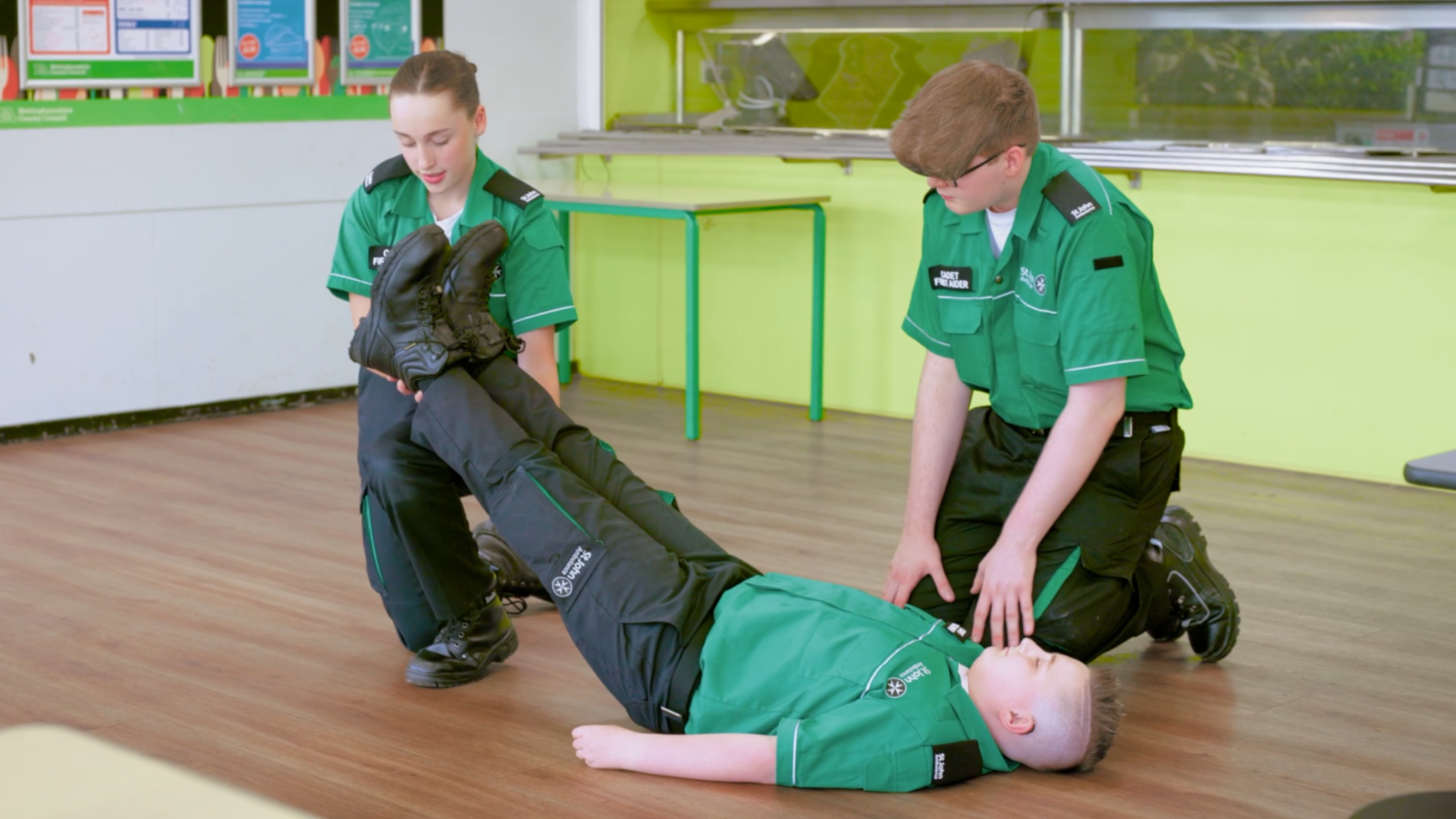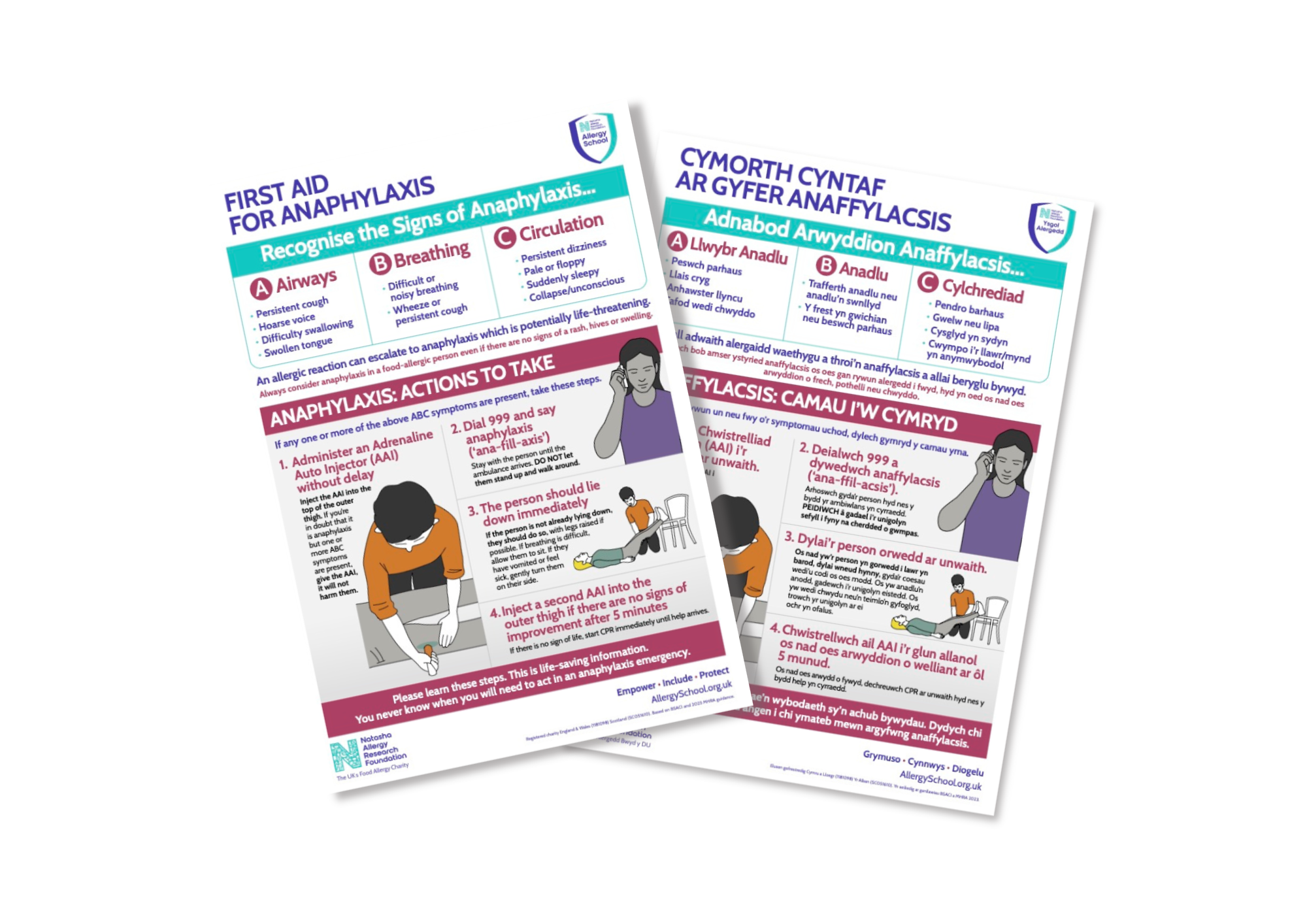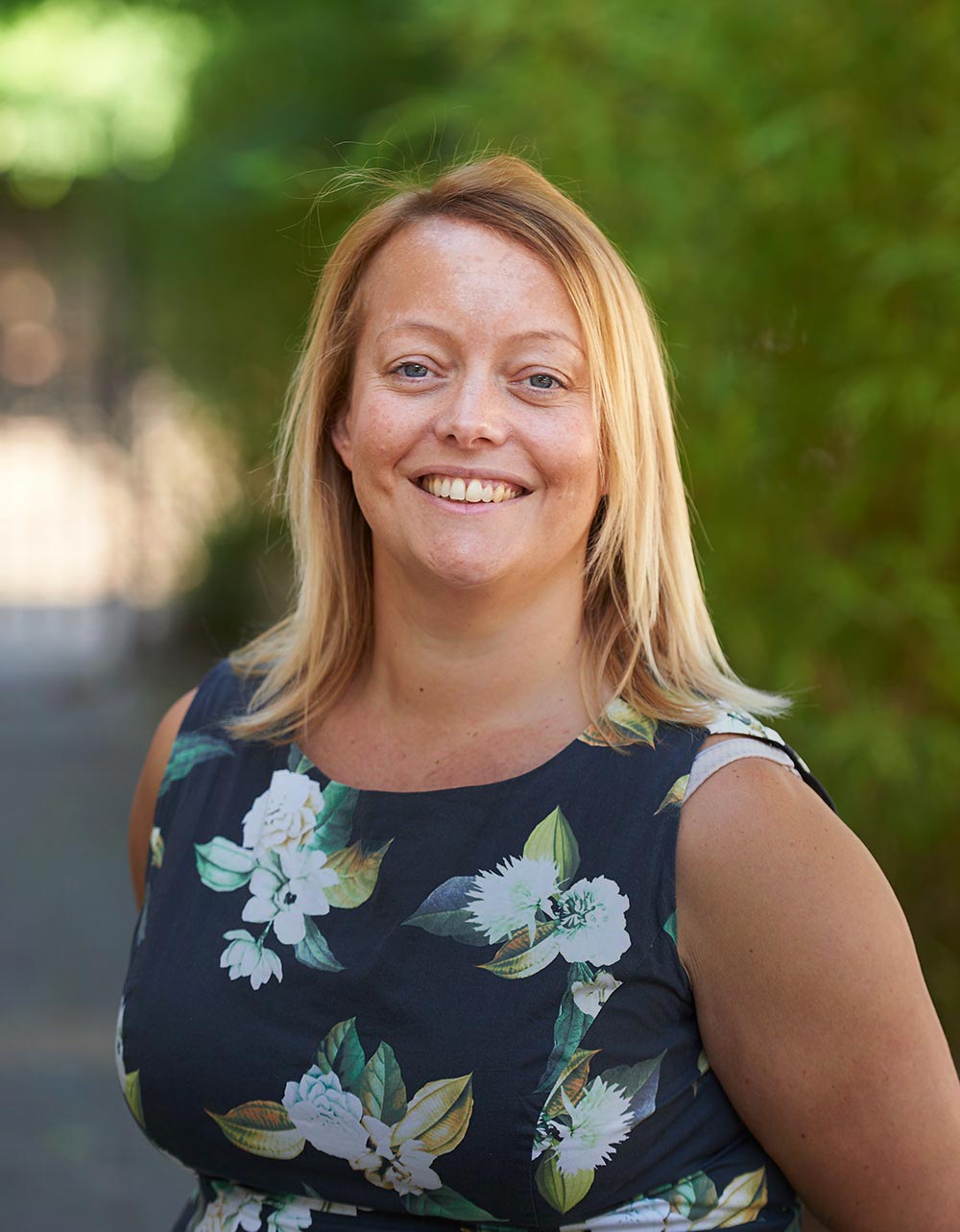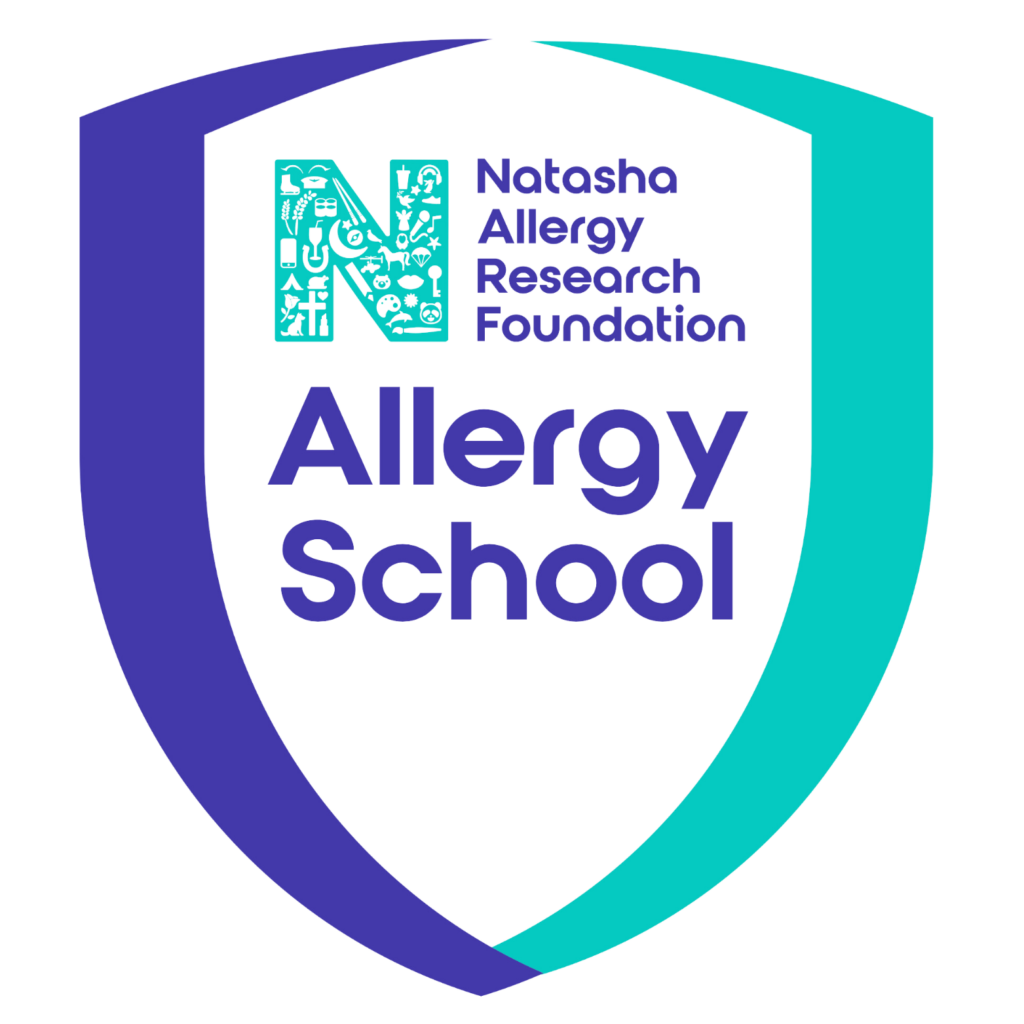New resources for secondary schools
The BBC school drama, Waterloo Road, recently tackled the life-threatening risks of food allergy. We supported the writers, providing expert guidance and ensuring accuracy about how to respond to a severe food allergic reaction.
To coincide with the storyline, we’ve launched free resources for secondary schools to raise awareness and understanding of food allergies.
Sign up for FREE to access these resources and share your feedback to help keep children safe.

How food allergy-friendly is your secondary school?
Take our free online self-assessment to see if your school is doing everything it can to protect students with food allergies. Developed in collaboration with secondary school leaders and teachers, it covers key areas of food allergy care while recognising that each child’s needs are unique. After completing the checklist, you will receive:

An Allergy School certificate and logo to display on your website and communications.

Allergy School Best Practice guidance for secondary schools.

Details of free online training: Allergy & Anaphylaxis for Schools.
Take our self-assessment
Tell us what you think
Your feedback helps us create resources that make a real difference. Share what additional tools or information you need to support pupils with food allergies in your secondary school.

Would you know what to do if a student had a severe allergic reaction?
Watch our film, produced with St John Ambulance, on how to respond to an allergy emergency.


Download our full-colour anaphylaxis poster to display in classrooms and staff areas.
Order spare adrenaline auto-injectors for your school
Schools in England can purchase spare adrenaline auto-injectors (AAIs) without a prescription. These are for emergency use if a child at risk of anaphylaxis does not have their own device available or working.
Use our model letter, signed by your headteacher, to request AAIs from a pharmacy.
Use this model letter to encourage your school to order spare AAIs.

What people are saying about Allergy School

Cameron Roach, executive producer of Waterloo Road, added:
“We’re so grateful for the support and guidance from The Natasha Allergy Research Foundation as we wrote the storylines around raising awareness of food allergies in the school environment. As with many stories in Waterloo Road, the show can be an amazing vehicle to raise issues that young people and families face.”
Watched by millions of young people and families across the UK, Waterloo Road has been a powerful platform to shine a spotlight on the challenges of living with food allergies, helping us raise awareness in secondary schools nationwide.

Sally Brooks, Executive Principal at Fulham Cross Academy, London, said:
“With so many young people now being diagnosed with food allergies, keeping these pupils safe is a significant issue for secondary schools. We are delighted to be one of the first wave of schools to be using The Natasha Allergy Research Foundation’s new best practice guidance for secondary schools. With better education and awareness of food allergies, we can help keep all pupils safe and included at school.”

Sarah Pattison, whose son with multiple severe food allergies is at secondary school, said:
“When young people start secondary school, the expectations on them to manage their own food allergies suddenly increase. The responsibility for making the right food choices at lunch and break times, carrying and administering their own medication, disclosing their food allergies to peers and school staff, and mentally risk assessing situations to keep themselves safe can weigh heavily. The new free Allergy School resources will support secondary schools to be safe, supportive and inclusive places for learners with food allergies.”

Wesley Davis, CEO of The Two Counties Trust, Nottinghamshire, said:
“At The Two Counties Trust the safety and wellbeing of our students is at the heart of everything we do. We are delighted to be working with The Natasha Allergy Research Foundation (NARF) as part of their Secondary Education Pilot. This collaboration is an important step in strengthening how we safeguard our young people with allergies and ensuring students and staff are well-informed and confident to support each other.
We are excited to be part of this national campaign and believe it has the potential to make a lasting difference by raising awareness and ultimately saving lives.”
